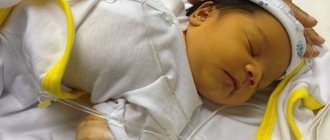Modern children begin to speak later. This is a fact long recognized by both doctors and teachers. Why? There are several versions, but all of them belong to the category of assumptions and none of them can be considered proven or scientifically substantiated. Neuropsychologist, speech pathologist and speech pathologist Marina Kuzmina tells the story
Article on the topic Stuck to phones. How do smartphones affect children?
1. Because of gadgets
During the Soviet era, it was believed that children under 3 years old should not watch cartoons for more than 15 minutes a day. Modern children are addicted to gadgets almost from birth, and this time, as a rule, is not controlled. Sometimes the parents themselves give gadgets to the child, because there are so many “developmental programs” for children aged 0+. Although experts still believe that blue screens are contraindicated for children (at least up to 1.2-2 years old): the child must hear “live” speech, see lip movements and emotions that arise on the speaker’s face.
2. Due to the abundance of information
From the moment of birth, modern children find themselves in an environment oversaturated with sounds: as a rule, the TV is constantly on in the house, music is playing, someone is talking on the phone. Background noise clogs the centers of perception. It takes the baby more time to get used to it and figure it out.
3. Due to a difficult pregnancy or childbirth
It's no secret that a perfect pregnancy is rare these days. Modern mothers work (which means they get tired, nervous, etc.) right up to contractions. Delayed speech development can be caused by adverse effects during intrauterine development, premature, prolonged or rapid labor, birth injuries, asphyxia during childbirth, and even early transfer to artificial feeding.
Article on the topic
English from cradle. Is it necessary to teach a child a language from infancy?
4. Due to the bilingual environment
In bilingual families, children begin to speak later. It is more difficult for a child to master two languages than one. But when the baby speaks, he will communicate with everyone in his own language: for example, with dad - in English, and with mom - in Russian.
5. Due to frequent changes
Do you travel a lot with your child? Do you often change your place of residence? Has your child had three nannies or two kindergartens in six months? Keep in mind: while you get used to new circumstances, speech development slows down.
The limit of patience
What to do if a child is stubbornly silent? The biggest mistake is to passively wait for him to speak on his own. Experts believe that simple phrasal speech (“let’s play”, “let’s go for a walk”) should emerge by one and a half to two years. From 2 to 3 years old, the child’s active vocabulary usually expands and two-part sentences appear.
All children undergo their first scheduled examination by a speech therapist at two years of age. If parents are worried about something, it is better to contact a specialist earlier.
The most alarming symptom that should force you to immediately undergo an examination is the lack of response to the parents’ voice. Ideally, the baby should turn around at any sound. If this does not happen, there may be hearing problems or mental disorders.
The limit of parental patience should come around three years. If the child does not speak before this time, action must be taken.
Article on the topic
5 facts about speech development. Truth and myths
Why a child does not speak by the age of 2: reasons according to Komarovsky
There is no need to worry too much if by the age of 2 the child still does not speak. This situation does not necessarily lead to big problems. It may also turn out that there is no reason to raise the alarm and drag the baby to the doctors. Komarovsky identifies the following reasons for the “silence” of a two-year-old child.
- Problems in the functioning of the hearing organs. It is not difficult to identify this cause, because with hearing damage, the child will not even understand speech.
- Pronounced heredity. A child often does not speak by the age of 2, because he received “silence” from his parents. If the situation persists until the age of 3, then it is worth showing the child to a specialist.
- Weakness of the body. A variety of phenomena lead to the fact that a child lags behind in development. The delay in the maturation of the central nervous system is compensated over time.
- Psychological trauma. According to Komarovsky, sometimes children do not speak until they are 2 years old because they suffered a severe fright at an early age.
- Overprotection on the part of adults. Children may not talk for a very long time if they simply have no reason to do so. A child whose wishes are immediately guessed does not need to voice them.
As you can see, in most cases, the lack of speech in a child of 2 years is a completely safe phenomenon. But still, sometimes it is impossible to do without special measures. Komarovsky talks about certain methods of intervention to stimulate the baby to start talking. It is useful to consider them.
What do experts advise parents of the silent child?
1. Communicate more with your child. Children with talkative parents rarely suffer from delayed speech development. At the first stage, no special techniques are required. Just comment on everything that is happening and explain your actions to your child: “There is noise on the street. There must have been a strong wind. Now I’ll turn on the kettle and make some tea.”
2. Do not jerk the child, forcing him to repeat words: there should be a calm, friendly atmosphere in the house.
3. Read together as much as possible, often and with expression. Watch your baby's reaction. If he is not interested in the book, put it down and get another one. This contributes to the accumulation of vocabulary.
4. Do a speech therapy massage: unobtrusively, with gentle movements, massage the child’s articulation area (cheeks, lips, tongue). Teach him to pull his tongue up. This helps develop the muscles of the tongue and frenulum (hyoid and two sublabial).
5. Don't be afraid of medications. Sometimes conservative measures are not enough and drug therapy has to be added. There are special drugs that activate the activity of speech zones.
Signs of delayed speech development in children 4 years old
In fact, it is possible to determine a delay in the development of speech in a child at a fairly early age. However, if for some reason parents did not pay attention to this at 2-3 years old, then it is simply impossible not to understand this when the child “turns” 4. Clear signs of speech development delay (SDD) are:
- speech consists of an almost incomprehensible set of sounds with clearly defined intonations;
- there is a desire to communicate, but participation in conversation mainly occurs through gestures and facial expressions using primitive speech structures;
- a clear reluctance to repeat words after parents, ignoring training sessions, a small vocabulary, usually in the region of 20-30 words, some words are replaced by sound imitations, characteristic of the youngest children;
- inability to carry out two-action requests that are voiced and not supported by gestures, for example: go to the table and take the ball.
Any of these signs requires prompt attention to a specialist. And there is nothing to worry about, even if the alarm turns out to be false.
When you can't wait
Parents should closely monitor their child's development. Undoubtedly, there are so-called variants of the norm and some deviations from the classical tables are quite possible. However, there are a number of signs that should give you concern:
- A four-month-old baby does not respond to the appearance of adults. Doesn't smile when seeing loved ones. No partying.
- By 6-7 months, babbling and repeated syllables meaning a specific word - “ta-ta-ta”, “na-na-na” and others – did not appear.
- At one and a half years old, the baby still does not even say simple words like “mom”, “dad”, “give”. Doesn’t understand simple requests like “come to me”, “bring a teddy bear”.
- At 2 years old, his vocabulary consists of only a few simple words.
- By the age of 2.5 years, the vocabulary is no more than 20 words and the child does not make sentences from them.
- By the age of 3, the child does not understand simple explanations and does not know the names of body parts.
- At 3 years of age, a speech pathologist expects to hear at least 1000-1500 different words and speech consisting of complex sentences. If the baby does not demonstrate this, then it makes sense to consult a specialist.
It happens that a child speaks, but in his own language. Undoubtedly, at this age he has the right to “bo-bo” and “woof-woof” instead of a dog, and even to some incomprehensible word that means something completely different in sound. However, such words should not constitute his entire vocabulary. If a 3-year-old child is understood only by his mother, this is also a reason to turn to specialists.
Forecast
Teaching a child to speak after the 3-year mark is quite difficult, so it is necessary to pay attention to his speech abilities as early as a year. If you provide timely medical care and strictly follow all medical recommendations, then the prognosis is considered favorable, even if the cause is a pathology of the central nervous system, brain, etc. In almost 90% of cases, the child begins to actively talk.
If you cannot solve the problem yourself, be sure to contact a specialist. Do not hesitate to visit a psychologist who will provide qualified assistance to both the baby and you (teach you how to communicate correctly with the child, instill speaking skills, and treat the problem calmly). And then your child will start talking.
Child development stages
In mental development, children go through several stages, and they go through them in different ways. Some crawl until they are one and a half years old, while others do not crawl at all; some babies erupt teeth at three or four months, while others only get their first tooth when they are one year old. Although, of course, certain developmental norms exist, and pediatricians and neurologists use them to assess the condition and development of the baby. According to these standards, “babble” should appear in a child’s speech as early as 6-7 months, and by the age of one year the baby should repeat several words. However, many factors influence the development of a child: pregnancy, childbirth, lifestyle and even gender. For example, boys, as a rule, begin to speak later than girls of the same age. In addition, boys are more likely to have speech problems. This is due to genetic factors. Heredity also plays an important role: if one of the parents spoke late, then the child will most likely experience a speech delay. And these are all variants of the norm.
Parents who closely monitor the development of the child should consult a doctor if, at the age of 1.5 years, the baby does not understand simple words (his name and the names of surrounding objects), and at the age of 2 years, he does not try to repeat words. Children's inability to form two-word phrases at 2.5 years of age and their inability to pronounce simple sentences at 3 years of age should also be a major concern for parents. Speech development delays are recorded in 2-4% of children.
But if even after 3 years the child does not speak even simple sentences, you can forget about the normal version. However, experts do not advise waiting until 2-3 years of age and suggest starting classes with the child already in infancy, at 7-8 months, when the baby begins to understand speech addressed to him.
Some mothers are glad that their children very early (about 1-1.5 years) begin to speak in correct sentences, using a fairly extensive vocabulary. However, such phenomena often lead to a breakdown of the nervous system. Such children need rest, walks in the fresh air, a minimum of impressions and moderate conversations.
A child does not speak at 3 years old: the main reasons
In general, there are two main groups of reasons why a 3-year-old child does not speak properly:
- physiological;
- social and psychological reasons.
Three year old baby
Physiological reasons for lack of speech in children:
- Hearing problems. Any problems associated with the development of the hearing system have a negative impact on the baby’s speech development. Those children who have hearing loss will always lag behind in terms of speech development. It is imperative that your child's hearing is checked by a qualified doctor.
- Poor development of the speech apparatus. The child may have poorly developed jaw and facial muscles. It is necessary to pay attention to the presence of increased salivation, a gag reflex when trying to swallow solid food, as well as whether the mouth is often slightly open. The reason for this may be that the baby was weaned too early.
- Premature pregnancy;
- Serious illnesses suffered in the first years of life.
- A disease like autism.
- Features of genetics. The child may have a genetic predisposition to delayed speech development. This is inherited, and there may be no pathologies.
Family problems
Psychological and social reasons:
- Lack of need and need to talk. If adults constantly guess wishes and take care of them, then the pet simply does not have any need to convey his wishes to others.
- Psychological stress. Due to some event that has a negative impact on the psyche, the process of speech development may stall. Such an event can be separation from mother, change of environment, illness. In this case, consultation with a child psychologist is necessary.
- Lack of attention. If you don’t spend a lot of time with your child and don’t involve him in general activities, he doesn’t develop a need to express his thoughts.
What should parents do if their child speaks poorly at 3 years old?
If a child at 3 years old speaks poorly or does not speak at all, then the problem must be solved without shelving it. What should parents do? First of all, you need to visit a pediatrician. Since it is the pediatrician who decides whether the child needs consultation with specialists.

If the pediatrician, after communicating with the child, really identifies deviations from the norm of speech development, he will give referrals to a neurologist and otolaryngologist. She also recommends seeking advice from a speech therapist and psychologist. Only specialists, after a thorough examination of the child, can draw conclusions about how serious the speech disorder is. Based on the conclusion, they will recommend appropriate corrective work.
If a child, upon reaching 3 years of age, receives a ticket to kindergarten, then when passing a medical commission, it is mandatory to visit a neurologist and otolaryngologist. At an appointment with these specialists, mom or dad should express their concerns about the baby’s speech disorders. If a medical diagnosis is made, a child from 4 or 5 years old can receive a place in a speech therapy group.
And remember that every child is individual and unique. If a friend’s or acquaintance’s child reads poetry perfectly at 3 years old, but yours babbles incomprehensibly, this does not mean that he will have serious problems in kindergarten and school. In case of mild violations, parents can cope with the problem on their own. If the violations are serious, then it will not be possible to do without the help of specialists. It is important to carry out competent corrective work in a timely manner. Because in most cases, speech disorders can be minimized or eliminated altogether. Then the child still has a chance for a normal life.










